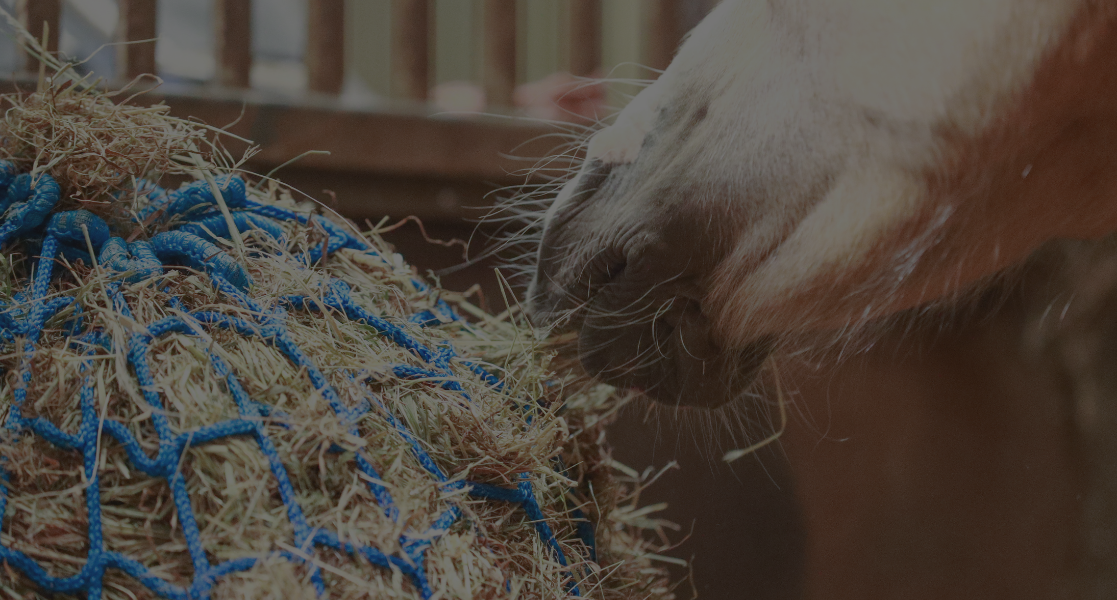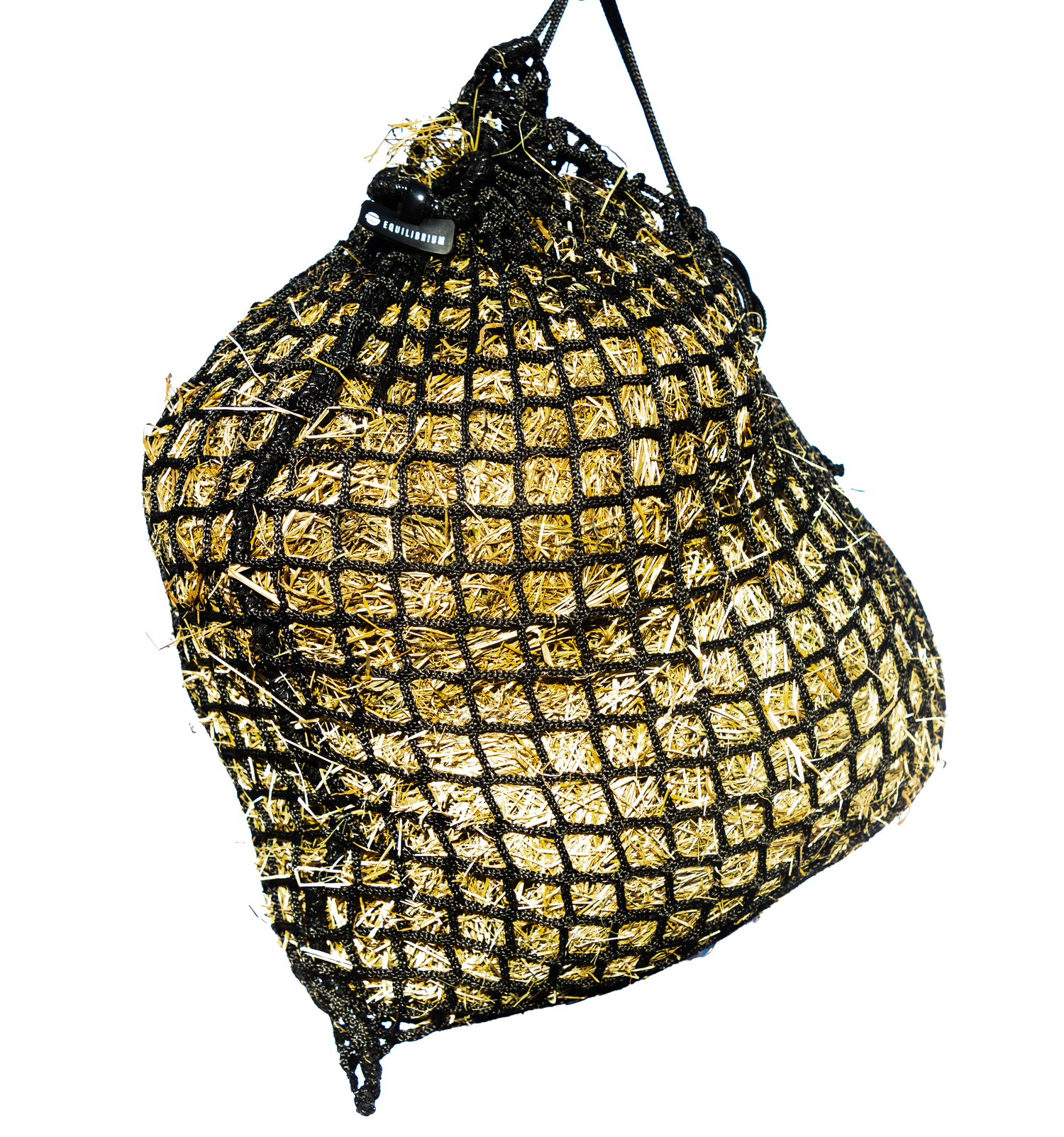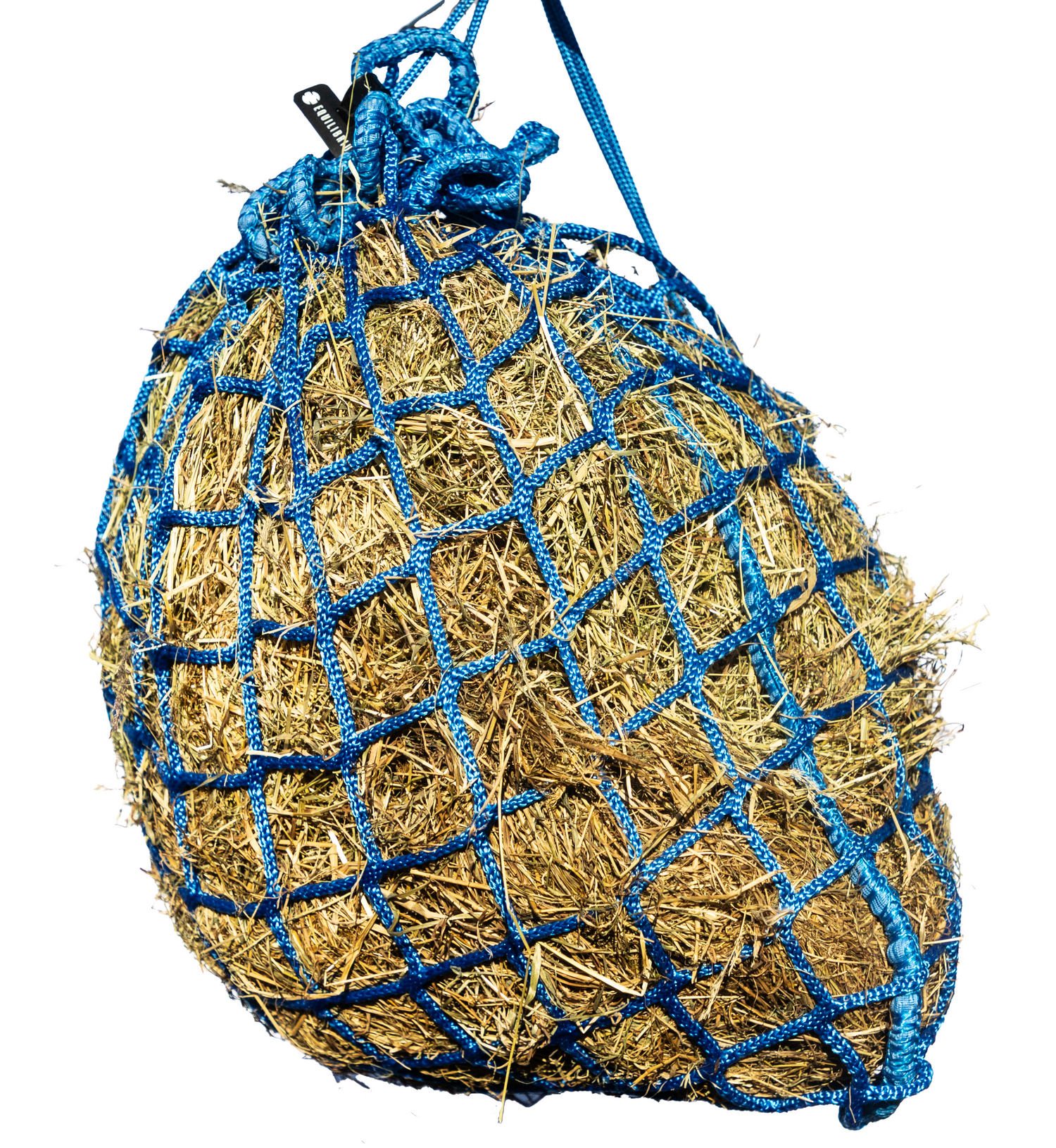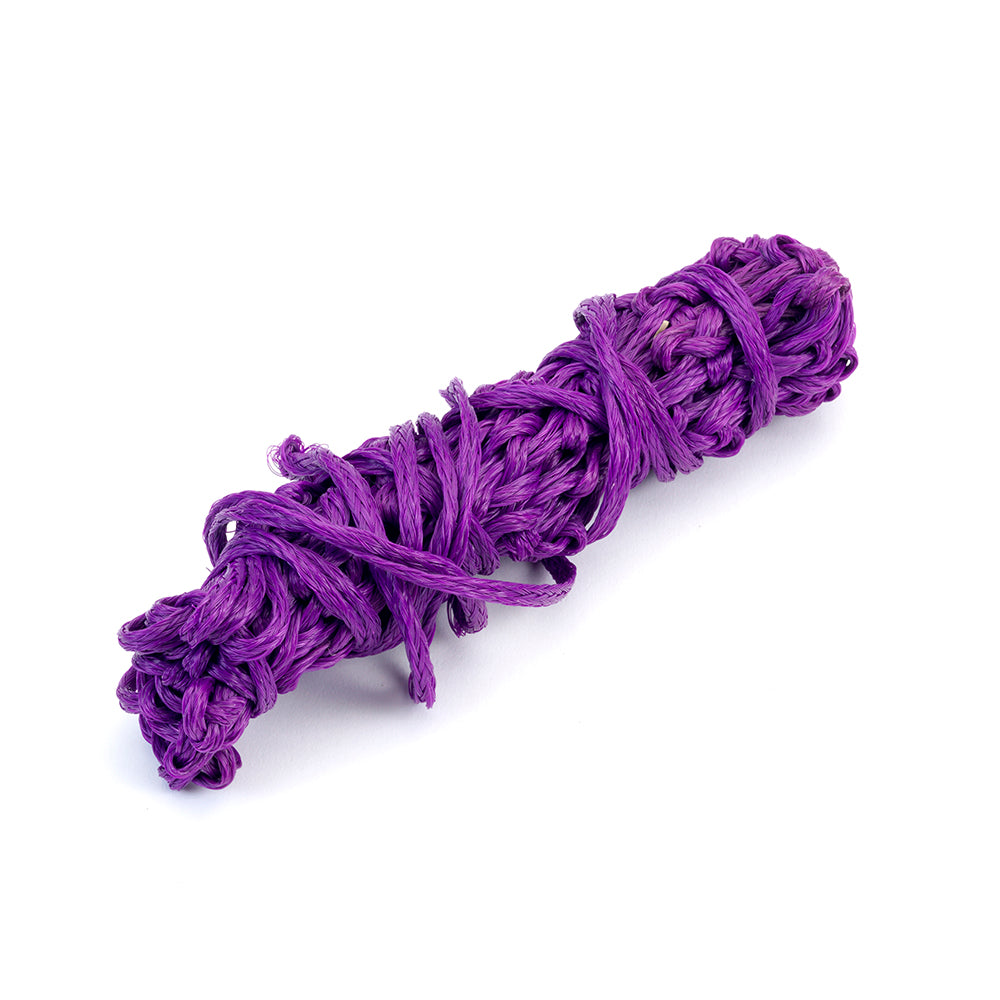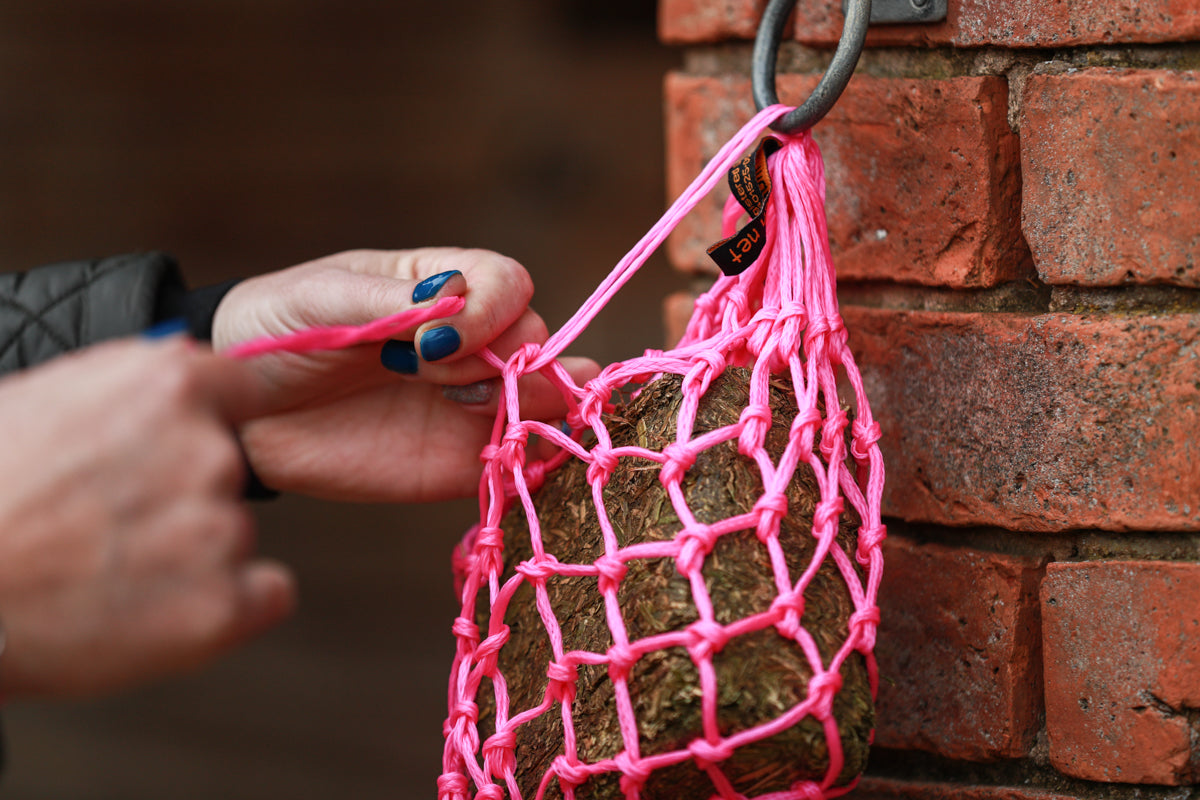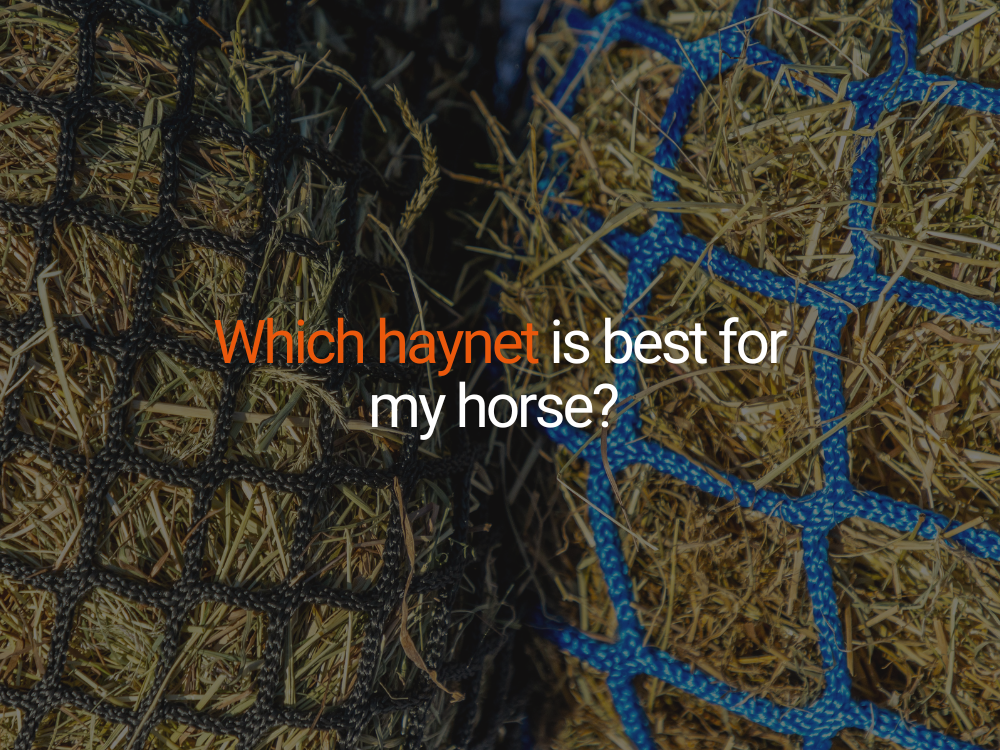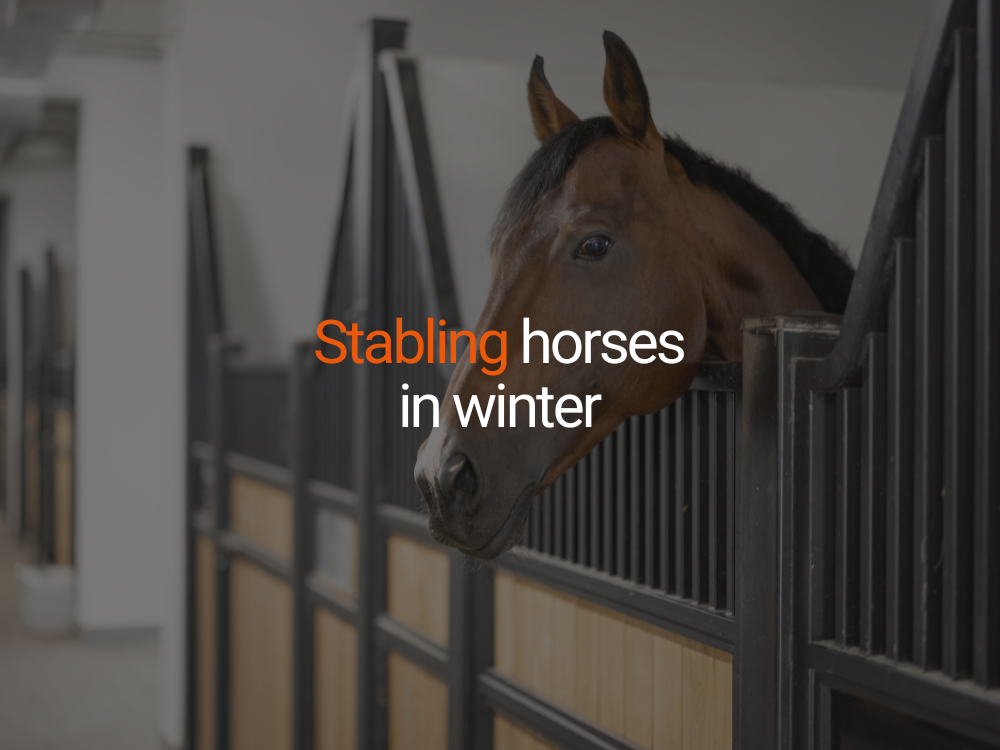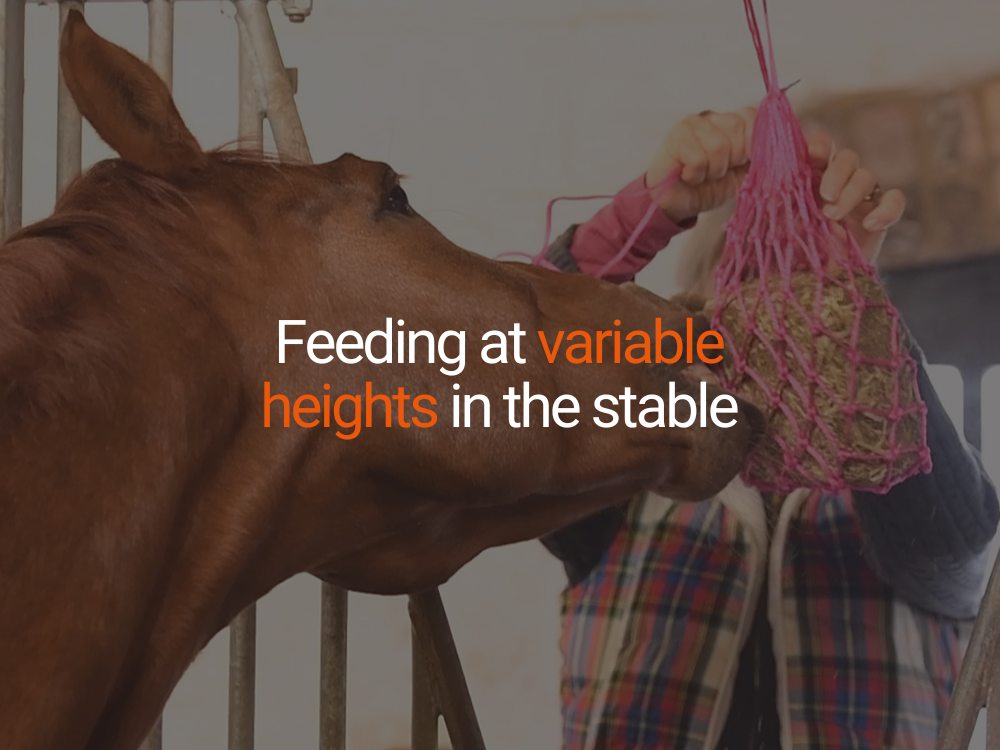2 products
2 products
Sort by:
Smarter fibre feeding to support a healthy horse, the PortionPacer Haynet allows you to take control of your horse’s diet with tested feed rates and known fill sizes. With 3-year guarantee.
- 2 x hole sizes (3cm and 6cm).
- 5 x haynet sizes from 2kg – 12kg**.
- 3cm hole size can extend eating times by up to 30% on average*.
- 6cm hole size has a similar feed rate to ad lib, floor fed hay on average.*
- Ideal for weight and dietary management of all horses.
- Helps reduce wastage compared to floor fed hay.
- Improves wellbeing by reducing the amount of time your horse is without food.
- Made from long lasting, strong Polypropylene woven into a knotless design.
- Fully recyclable at home at the end of its long life.
*A field based observational study looking at 10 horses and 10 ponies fed forage from the floor, a 6cm holed net, and a 3cm holed net.
**Based on average haynet fill using dry meadow hay.
Munch Net
Hanging up your vitamunch or fibre block allows you to use your munch in a variety of ways to help combat boredom in horses.
• Specially designed to hold a 1KG munch block.
• Hang in the stable or lorry or trailer when you are out and about.
• Combine the munch net with a munch block for a perfect boredom breaker.
• Use whilst horse is tied up for the farrier, vet, physio or just for grooming.
• Prolongs the eating of vitamunch or munch snacks.
• EU Registered Design.
• Available in Blue, Pink, Purple and Red.
• One size.
• Horses are trickle feeders and therefore their stomachs continually produce acid, feeding fibre in the form of blocks in a small-holed net, can help buffer this acid as chewing produces acid-buffering saliva.
Additional Information
This small holed haynet enables you to use your vitamunch or calmmunch fibre blocks when travelling your horse in the horse box or trailer. Popping the munch blocks into our munch nets also means you can use the blocks whilst your horse is tied up on the yard for the farrier, vet, physio or just for a groom and they will be kept occupied whilst also getting a great healthy snack.Munch Net
Hanging up your vitamunch or fibre block allows you to use your munch in a variety of ways to help combat boredom in horses.
• Specially designed to hold a 1KG munch block.
• Hang in the stable or lorry or trailer when you are out and about.
• Combine the munch net with a munch block for a perfect boredom breaker.
• Use whilst horse is tied up for the farrier, vet, physio or just for grooming.
• Prolongs the eating of vitamunch or munch snacks.
• EU Registered Design.
• Available in Blue, Pink, Purple and Red.
• One size.
• Horses are trickle feeders and therefore their stomachs continually produce acid, feeding fibre in the form of blocks in a small-holed net, can help buffer this acid as chewing produces acid-buffering saliva.
Additional Information
This small holed haynet enables you to use your vitamunch or calmmunch fibre blocks when travelling your horse in the horse box or trailer. Popping the munch blocks into our munch nets also means you can use the blocks whilst your horse is tied up on the yard for the farrier, vet, physio or just for a groom and they will be kept occupied whilst also getting a great healthy snack.

